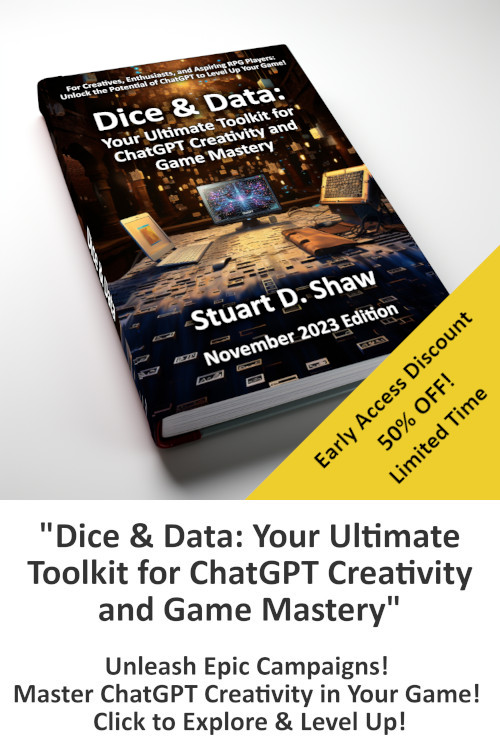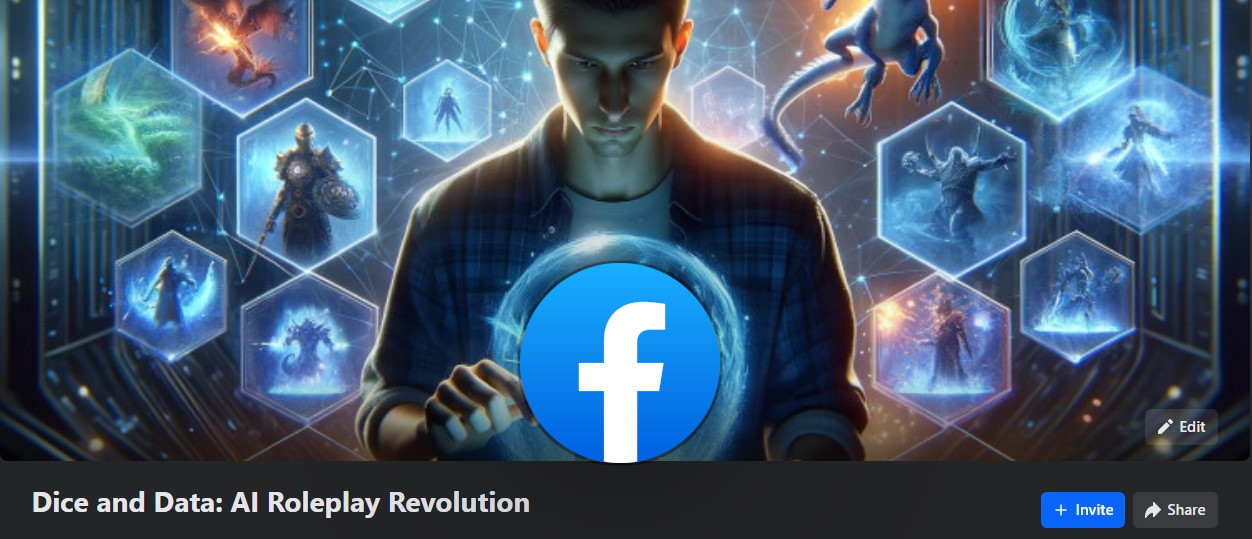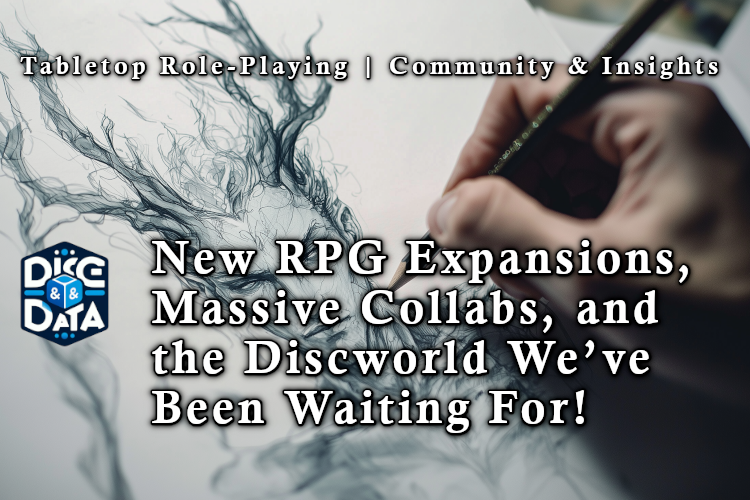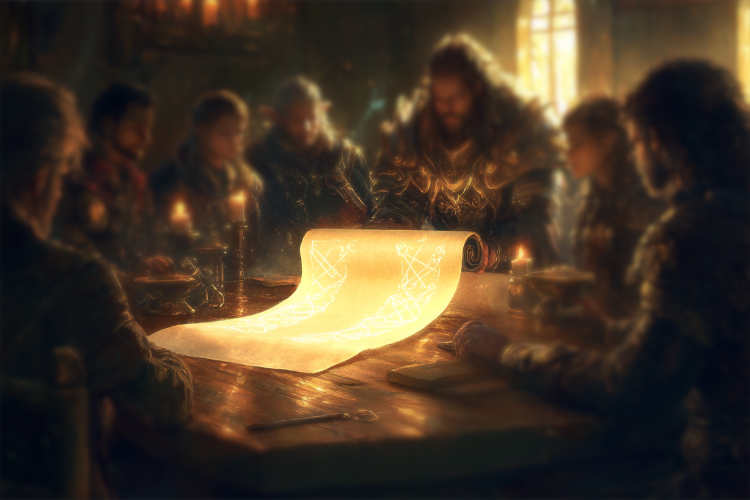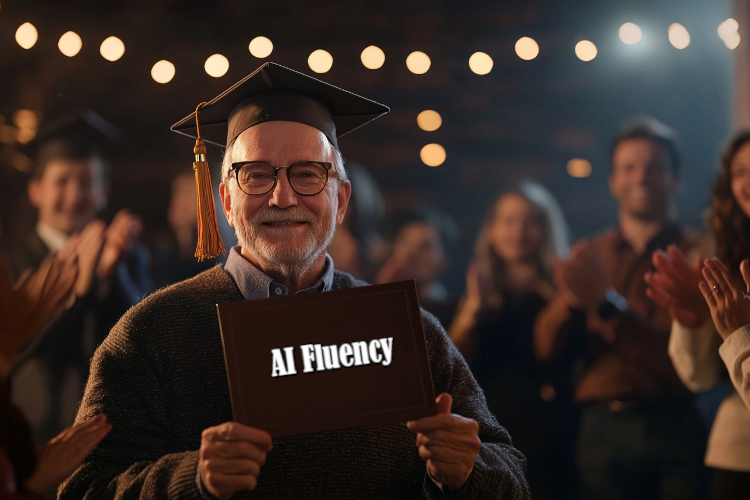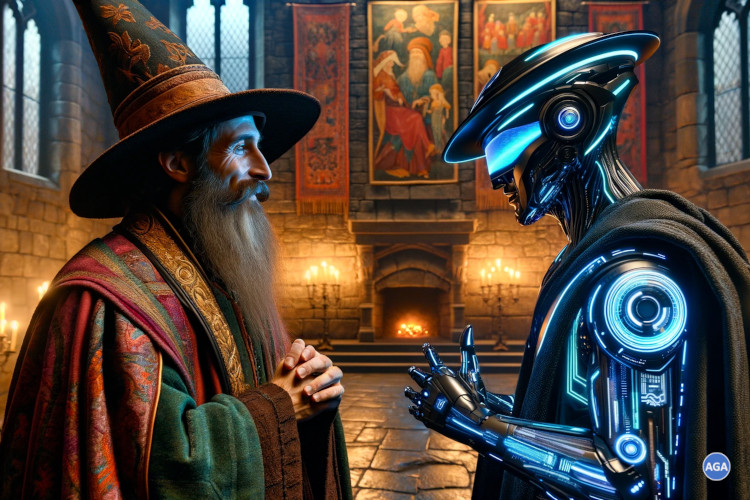
- Home
- AI Ethics in RPGs
AI Ethics in RPGs: A Guide to Responsible and Legal AI Use in Tabletop Role-playing
The introduction of AI technologies like DALL·E 3 and ChatGPT-4 has revolutionized tabletop role-playing games (RPGs). This blend of classic gaming and advanced tech brings a surge of ethical questions and possibilities. It marks a new era where imagination intertwines with algorithms. In this space, deeply rooted in human creativity, the legal implications of AI in gaming are significant. AI-assisted RPG creativity represents a profound shift, transforming how stories are crafted and worlds are envisioned.
For RPG creators and enthusiasts, this new era is both exhilarating and complex. This article isn't just an academic topic; it delves into the very essence of RPGs. It explores AI's role, acknowledging its wonders and addressing its challenges. Our mission is to use AI in a way that respects RPG traditions while adapting to new ethical and legal landscapes.
Ethical Quandaries and Legal Challenges in AI-Enhanced Gaming
Picture a classic RPG scene: dice rolls, captivating narratives – now though also enhanced by AI. This AI creates complex worlds and characters, marking a significant shift. This integration is at the heart of AI ethics in RPGs. It's more than a technological advancement; it's a cultural shift that expands the boundaries of gaming creativity. AI-assisted RPG creativity isn't a mere trend. It's a portal to a future where imagination is the only limit to storytelling.
This evolution also presents a significant challenge: preserving the essence of traditional RPGs in the AI age. Embracing tools like DALL·E 3 and ChatGPT-4 involves a careful balance. We must integrate AI's innovation while maintaining the human touch central to RPGs. The legal implications of AI in gaming are significant. They spark discussions on authorship, copyright, and intellectual property.
The role of AI in RPGs also raises questions of accessibility and inclusivity. As AI tools become more common, concerns about the digital divide and equal access grow. It's crucial that AI in gaming fosters an inclusive, diverse RPG community. In this new era, our responsibility is to use AI ethically and mindfully. We aim to enrich the RPG experience for everyone, keeping it engaging and heartfelt, true to the spirit of RPG legends.
Beyond legalities and the spirit of the game, AI ethics in RPGs is also about addressing biases in AI systems. AI algorithms, often trained on existing data, may inadvertently reinforce stereotypes or miss diverse narratives. You only have to use the term "Fantasy woman" in an Image Creator and you will immediately see the bias at play. It's important to use varied, inclusive data to create stories and art reflecting a broad range of human experiences.
The Facts Matter: Understanding is Key to using AI Ethically and Responsibly
Delving into AI ethics in RPGs, we need to anchor our discussion in concrete facts, steering clear of mere speculation. A key issue at play is whether OpenAI's method of processing training data sidesteps the terms of "fair use" of original content and works.
OpenAI argues that its use of original content aims purely at innovation, not the creation of new works, claiming this as lawful under copyright law’s 'fair use' doctrine. This perspective has been pivotal in the rise of various internet services, including the likes of Google and image search features. Yet, the AI outputs, especially in terms of potentially infringing reproductions, raise critical questions about copyright infringements and accountability. [source]
Consider OpenAI's AI models, such as Image GPT (iGPT), which train on sequences of image pixels. Picture a model learning from an image of a 'sleeping cat'. It masters the pixel sequence of this scene. Later, when asked to generate a 'sleeping cat' image, the model crafts a new image using its pixel knowledge. This isn't a carbon copy of any training image but a fresh creation based on its understanding of sleeping cats in pixel form. The legal conundrum? Whether generating new images from learned pixel patterns infringes on the original content's copyright. [source]
As we navigate this complex terrain, we must weigh the scales of technological advancement against the rights of original content creators. The crux of the matter is determining if OpenAI's approach of generating new images from learned patterns oversteps legal or ethical boundaries.
Your perspective here is crucial. In this intricate journey, respecting diverse views is essential. Our aim? To strike a harmonious balance that honors both AI innovation and the invaluable contributions of artists and creators. This equilibrium is vital in steering the future course of AI's interplay with creative content.

AI Ethics in RPGs: Crafting Stories and Art Responsibly
Transparency is key when creating AI-enhanced RPG content. Creators should clearly communicate AI's role in their process, building trust and sparking discussion about AI and creativity in gaming. As AI tools intertwine with storytelling, clear communication with audiences ensures that AI use in RPGs is ethical and respectful of the genre's traditions.
Staying updated on the legal implications of AI in gaming is essential. This means grasping copyright laws, understanding AI-generated content, and practicing ethical creativity. Workshops, forums, and discussions are key to building an informed community that uses AI both effectively and responsibly.
Moreover, the ethical use of AI in RPGs involves advocating for transparent and ethical AI technologies. This includes selecting AI tools based on ethical principles and engaging in discussions on AI policies and regulations. By actively participating in shaping the AI landscape in RPGs, creators and players can ensure AI enhances creativity while aligning with the RPG community's values and traditions.
The Future of AI in Gaming: Ethical Considerations and Next Steps
In our ever-evolving gaming universe, the role of AI ethics in RPGs is not just a trend, but a cornerstone of innovation. This dynamic landscape calls for a vigilant and adaptable approach. As AI tools revolutionize storytelling and artistic expression, we're entrusted with the mission to continually refine our ethical compass. The essence of our endeavor? To ensure AI-assisted RPG creativity is a beacon of innovation, all the while honoring the cherished traditions of role-playing games.
Community engagement and open dialogue are not just beneficial; they're imperative. It's vital for creators and aficionados alike to foster a culture of conversation around AI in RPGs. Think of it as a gathering around the gaming table, where sharing best practices and navigating the impact of AI on RPGs is our quest. We must also keep a keen eye on the legal implications of AI in gaming, adapting as laws and norms evolve. By championing these dialogues, the RPG community isn't just following the trend; we're setting the pace for how AI intertwines with gaming narratives.
In wrapping up, let's not forget the heart of the story. Integrating AI into gaming isn't just about unlocking new possibilities; it's about stewarding them responsibly. It's a balancing act between exploring the frontiers of AI and upholding our ethical and legal principles. Our goal? To employ AI in enhancing RPGs, with human creativity as the guiding star. Our journey through the realms of AI in RPGs is one of both opportunity and responsibility. Our quest, noble adventurers, is to chart a course that reveres the legacy of role-playing games while welcoming the wonders of future innovations.

Written by Stuart Shaw, a 40-year veteran of tabletop role-playing games. His journey started with Dungeons & Dragons in 1983, and he is the author of "Dice and Data: Your Ultimate Toolkit for ChatGPT Creativity and Game Mastery". Stuart is eager to share his passion and expertise with the world and enjoys writing about news and innovations in the RPG world. Join him on an exciting adventure into the world of TTRPGs. About me.
